WMG News
WMG Professor heads to key automotive summit
 Professor Kerry Kirwan, Head of Sustainable Materials and Manufacturing, will be representing WMG at SMMT’s International Automotive Summit on Wednesday (29 June).
Professor Kerry Kirwan, Head of Sustainable Materials and Manufacturing, will be representing WMG at SMMT’s International Automotive Summit on Wednesday (29 June).
The Summit takes place at IET London and is one of the key events in the automotive calendar. Professor Kirwan will sit alongside experts from Jaguar Land Rover and TRW Aftermarket UK on the Automotive and the Circular Economy Panel.
More information and the full agenda can be found here.
WMG plays key role in £20 million announcement backing British Automotive battery manufacturing
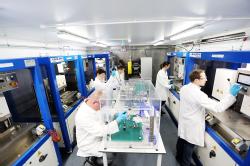 WMG at the University of Warwick are delighted to be part of a £19.4m project to support the development of next-generation electric vehicle batteries in the UK, funded through the Advanced Propulsion Centre (APC UK Ltd).
WMG at the University of Warwick are delighted to be part of a £19.4m project to support the development of next-generation electric vehicle batteries in the UK, funded through the Advanced Propulsion Centre (APC UK Ltd).
The funding will support leading edge manufacturing research focussed around Nissan's Sunderland battery manufacturing plant - the largest full scale automotive Li-ion battery manufacturing facility in Europe. WMG researchers will play a key role in helping Nissan take forward this opportunity and will receive £1m for the research.
The consortium led by Nissan with WMG at the University of Warwick, Hyperdrive, Newcastle University, and Zero Carbon Futures (ZCF), will bring together engineers, researchers, new technology and existing facilities, assets and knowledge to create and prove new and improved manufacturing processes for the next generation of automotive batteries.
WMG has particular skills around battery chemistry and the manufacturing processes used to scale this up to high volume production. WMG role in the project will be to investigate potential improvements to battery chemistry and increasing manufacturing yield, and to optimise automated manufacturing processes to enable Nissan to remain at the forefront of electric vehicle technology.
Lean, Mean and Green
 Dr Kerry Kirwan is proud to be representing WMG at a special seminar for The Institute of Materials, Minerals and Mining (IOM3) Coventry and Warwickshire Materials Society on Monday 3 November.
Dr Kerry Kirwan is proud to be representing WMG at a special seminar for The Institute of Materials, Minerals and Mining (IOM3) Coventry and Warwickshire Materials Society on Monday 3 November.
Dr Kirwan’s ‘Dispelling The Myth That Sustainable Materials Are Inferior…’ will use Warwick’s WorldF3rst racing project to show what can be achieved with sustainable, natural and recycled materials.
Expert Comment: Dr Stuart Coles
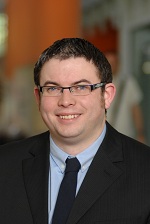 Dr Stuart Coles is an Assistant Professor in Sustainable Materials and Manufacturing His main research interests are based around sustainability and the substitution of natural materials into industrial products.
Dr Stuart Coles is an Assistant Professor in Sustainable Materials and Manufacturing His main research interests are based around sustainability and the substitution of natural materials into industrial products.
Commenting on the Automobile Association (AA) joining green groups in warning that changes in energy policy will harm the climate he said:
“Incentives are needed on low-emission vehicles to keep them attractive to consumers whilst technology catches up and battery-powered cars are able to compete in terms of function with conventional vehicles."
“In his Budget, Chancellor George Osborne announced that the nil vehicle excise duty (VED) band for clean petrol cars would be restricted in future to electric vehicles. This removes a tax break for clean petrol cars and hybrids, which will from 2017, attract the same VED as gas guzzlers."
“The Government’s policy on VED is damaging to the environment as effective low carbon options, such as plug-in hybrids, will now fall into the same tax band as many other higher emission vehicles. Whilst clean electric vehicles are available, they are not currently able to travel much farther than 100-120 miles (the maximum for the Nissan Leaf is 124 miles with perfect conditions) and are therefore not a viable option on many journeys.”
Call for Papers - WMG Doctoral Research and Innovation Conference
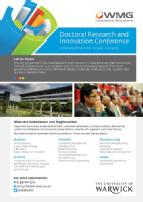 The 2nd annual WMG Doctoral Research and Innovation Conference, entitled ‘Innovation through Collaboration’, is an excellent opportunity to showcase research from both academia and industry across themes in design, materials, manufacturing, systems and business transformation.
The 2nd annual WMG Doctoral Research and Innovation Conference, entitled ‘Innovation through Collaboration’, is an excellent opportunity to showcase research from both academia and industry across themes in design, materials, manufacturing, systems and business transformation.
Organised by doctoral students, the conference will be held in the International Digital Laboratory on 30th June - 1st July, with an evening social event on the 30th.
Papers and poster presentations will take place across a wide variety of topics and awards will be presented in each theme.
Abstracts should be submitted online by 31st March.
EPSRC Centre for Doctoral Training Officially Launched
The EPSRC Centre for Doctoral Training in Sustainable Materials and Manufacturing was officially launched yesterday (17 December) at a reception, hosted by Professor Lord Kumar Bhattacharyya, at the House of Lords.
An exciting collaboration between the Universities of Warwick, Exeter and Cranfield, the new Centre will offer an International Engineering Doctorate (EngD (Int)) in Sustainable Materials and Manufacturing, awarded jointly by the three institutions. It is supported by the Engineering and Physical Sciences Research Council and industry partners.
Invited guests from both industry and the education sector heard how the Centre will address industry-driven research challenges around sustainability; including establishing natural or recovered materials as feed-stocks, reducing process inputs and outputs without compromising performance or economic viability, extracting high value materials from waste streams, and ultimately establishing economic and environmental sustainability.
New EPSRC Centre for Doctoral Training in Sustainable Materials and Manufacturing
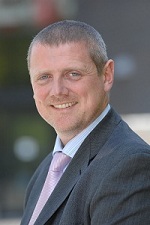 It was announced today, Friday 28th March 2014, that WMG is to lead a new “EPSRC Centre for Doctoral Training in Sustainable Materials and Manufacturing”. The Centre will be a partnership between universities of Warwick, Exeter and Cranfield.
It was announced today, Friday 28th March 2014, that WMG is to lead a new “EPSRC Centre for Doctoral Training in Sustainable Materials and Manufacturing”. The Centre will be a partnership between universities of Warwick, Exeter and Cranfield.
Dr Kerry Kirwan, Director of the new EPSRC Centre for Doctoral Training in Sustainable Materials and Manufacturing, said:
The new Centre will produce the next generation of manufacturing business leaders with a high level understanding of interdisciplinary enterprise, the research experience essential to compete in a global low carbon environment, and an international view of Sustainability and the Circular Economy."
This is the fifth such Doctoral Training Centre (CDTs) to be awarded to University of Warwick leadership by the UK’s research councils. The expected total investment by the research councils for all five CDTS led by Warwick will be around £19 million.
Bloodhound Supersonic Car team inspires at WMG
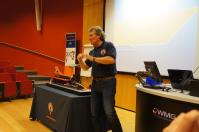 On Wednesday 15 January, WMG welcomed members of the Bloodhound Supersonic Car (SSC) project team for a series of events held in the International Manufacturing Centre.
On Wednesday 15 January, WMG welcomed members of the Bloodhound Supersonic Car (SSC) project team for a series of events held in the International Manufacturing Centre.
The Bloodhound SSC is a jet and rocket powered car and is being designed and built to achieve 1,000 mph (just over 1,600 kph) - which would break the land speed record by 33%, the largest ever margin. The project is being directed by Richard Noble OBE, who also attended and spoke during the event on Wednesday.
During a busy visit, the Bloodhound team were a feature of an Engineering Careers afternoon which was run in collaboration with the School of Engineering. In the afternoon, 95 pupils from 8 local schools in Coventry and Warwickshire visited the university to find out more about the variety of exciting careers offered through studying Engineering.
Steering wheel made from carrots goes on display at the Science Museum
 A Formula 3 steering wheel made from carrots and created by engineers at WMG, University of Warwick, has gone on display at the London Science Museum.
A Formula 3 steering wheel made from carrots and created by engineers at WMG, University of Warwick, has gone on display at the London Science Museum.
The Nano-cellulose wheel is the first of its kind and just one of several sustainable and renewable materials that have been used by WMG in the development of this F3 rated vehicle.
Professor Peter Halley to visit WMG for seminar
 WMG is pleased to welcome Professor Peter Halley to visit the department in June. Professor Halley is an internationally-recognised leader in the field of starch-based biopolymers and bio-nanocomposites, based at the University of Queensland in Australia.
WMG is pleased to welcome Professor Peter Halley to visit the department in June. Professor Halley is an internationally-recognised leader in the field of starch-based biopolymers and bio-nanocomposites, based at the University of Queensland in Australia.
Professor Halley will be visiting Professor Tony McNally and WMG’s Nanocomposites research team during his visit and will be giving a seminar, which all Warwick staff and students are invited to attend.
Professor Halley’s seminar, entitled ‘Translational Polymer Research for Sustainable Polymers’, will be taking place on Thursday 13th June (from 12 noon) in WMG’s International Digital Laboratory.
